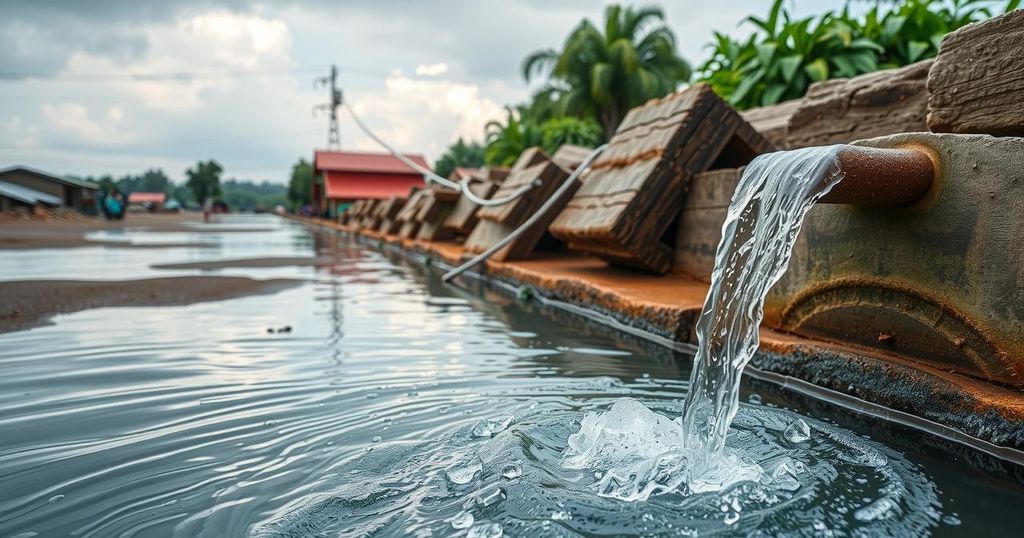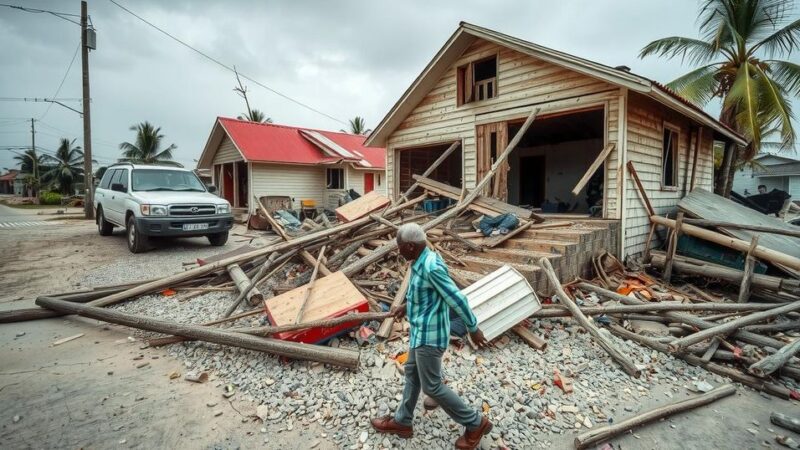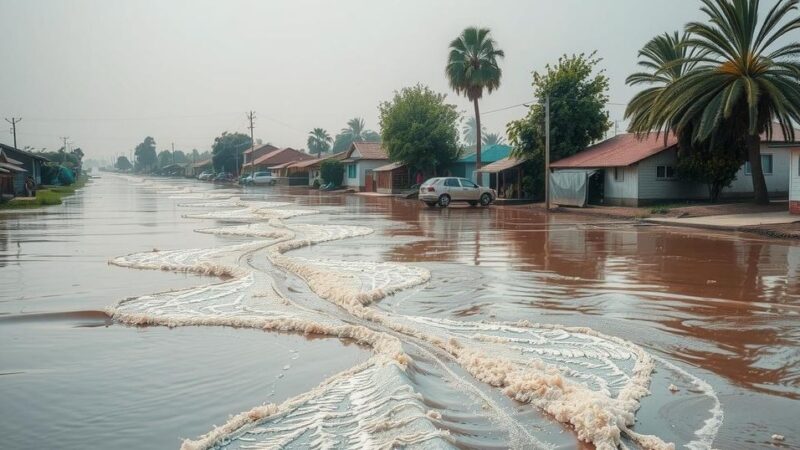The World Bank Group’s report underscores the centrality of water in climate solutions, revealing its critical role in mitigating climate impacts, especially in lower-income nations. It emphasizes the urgency for investment in water resource management and the necessity for effective policies to combat vulnerability. The report advocates for public-private partnerships to bridge the significant investment gap needed to achieve sustainable development goals and support vulnerable communities in adapting to climate change.
The World Bank Group’s report titled “People in a Changing Climate” highlights the critical role water plays in addressing climate challenges, particularly regarding adaptation and development. Released at COP29, this document synthesizes insights from 72 Climate Country and Development Reports (CCDRs), emphasizing that individuals are both affected by and instrumental in combating climate risks. CCDRs aim to assist nations in aligning their developmental strategies with climate initiatives by enhancing resilience, lowering greenhouse gas emissions, and achieving United Nations-mandated Sustainable Development Goals (SDGs).
The report underscores the disproportionate impact of climate change on lower-income nations, with severe labor productivity losses projected due to rising temperatures. It advocates for policies that focus on human welfare, resilient infrastructure, and macroeconomic strategies to mitigate vulnerabilities and promote sustainable transitions through global cooperation. The report particularly draws attention to water scarcity and its cascading effects on agriculture, food security, and human development. It reveals stark consequences of climate change, such as droughts that diminish agricultural output and floods that lead to infrastructure loss and health crises.
Specific examples given include predictions that Malawi will see a 14% rise in poverty due to drought, Ghana could lose significant hydropower generation capacity, and agricultural losses projected for Argentina could reach $2.1 billion, marking 0.6% of its GDP. The CCDRs call for substantial investment in water resource management to create climate resilience, with a specific emphasis on transforming policies to align with sustainability goals. Enhanced water security is vital, particularly through improved wastewater management, which poses significant environmental challenges.
Current investments in the water sector are alarmingly low, at about 0.5% of GDP for most CCDR countries, although there exists a potential return on investment of $7.1 trillion for an initial $1.8 trillion investment by 2030. To bridge the prevailing $960 billion annual investment gap, the report advocates for robust public-private partnerships, particularly in low-income regions. It is essential to ensure adequate access to water while pushing forward a transition towards green energy across all development sectors. Overall, bridging the financing gap will be pivotal in achieving climate goals and safeguarding vulnerable communities.
The World Bank Group’s report released at COP29, titled “People in a Changing Climate,” provides insights from numerous Climate Country and Development Reports (CCDRs). These reports are instrumental in helping countries to navigate the complexities of climate change while aligning their development strategies with sustainability objectives. The emphasis lies heavily on the interrelationship between water scarcity and climate impacts, especially how these challenges disproportionately affect lower-income nations. Moreover, the report elucidates the dire need for strategic investments in water management and climate resilience, accentuating the significance of addressing finance gaps to ensure effective resource allocation and implementation of sustainable practices. Water management transcends mere availability; it is integral to human and economic development, particularly in regions vulnerable to climate variability.
The World Bank Group’s report “People in a Changing Climate” highlights the essential role of water in tackling climate change and outlines the urgent need for investment in water resources and infrastructure. By drawing attention to the disproportionate impact of climate-related challenges on lower-income nations, the report calls for strengthened policies and collaborative efforts to cultivate resilience. It emphasizes the necessity for significant financial investments, alongside strategic public-private partnerships, to bridge the evident finance gaps. Prioritizing water management and sustainable development is critical for fostering climate resilience and ensuring the well-being of vulnerable populations around the world.
Original Source: www.downtoearth.org.in







